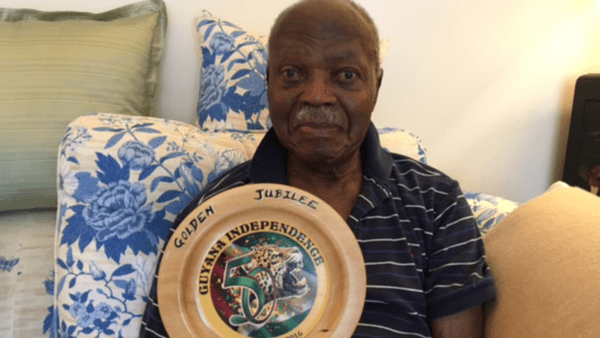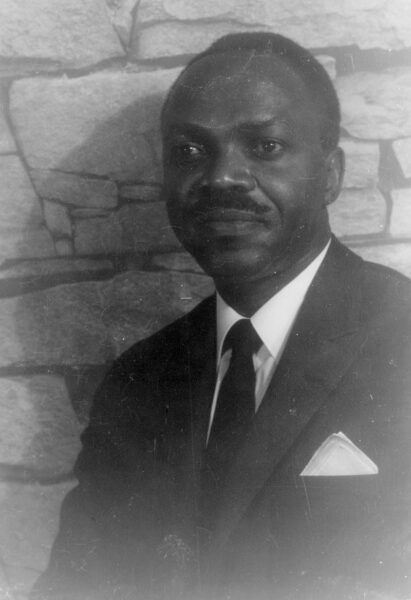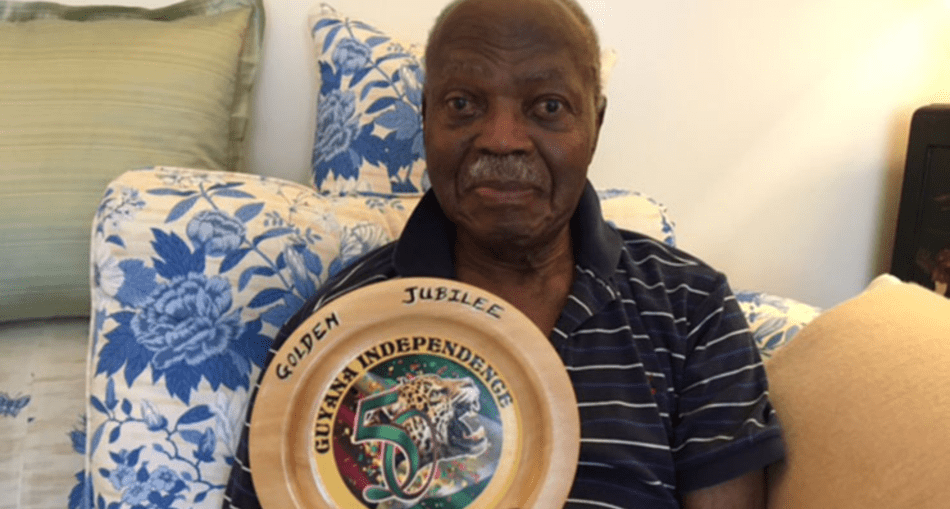Eustace Edward Ricardo Braithwaite, known as E. R. Braithwaite, left an indelible mark on literature, education, and diplomacy.

E.R Braithwaite with Guyana Jubilee Year Plaque, Made in Guyana (Photo credit: Francis Quamina Farrier)
Born on June 27, 1912, in Georgetown, Guyana, Braithwaite’s life journey epitomises resilience, intellect, and activism, making him a significant figure, especially during Black History Month.
EARLY LIFE AND EDUCATION
Braithwaite was born into a family where education was highly valued. His upbringing was marked by the pursuit of knowledge and academic excellence, with both his parents having attended Oxford University.
Despite his promising start, Braithwaite faced racial discrimination and socioeconomic challenges that would later shape his literary works.
While his father was a miner and his mother a homemaker, he attended Saint Ambrose Primary School.
He also attended Queen’s College and then the City College of New York in 1940. His academic pursuits were momentarily interrupted by World War II, during which he served as a pilot in the Royal Air Force, an experience he later drew upon in his writing.
LITERARY CONTRIBUTIONS
This former lecturer’s most renowned work, ‘To Sir, With Love,’ published in 1959, provided a poignant portrayal of racial discrimination and social conditions faced by black people.

Braithwaite in 1962 [Photo credit: Carl Van Vechten]
Despite the commercial success of the film, Braithwaite remained critical, expressing dissatisfaction with its sentimental portrayal and the downplaying of interracial romance, a significant theme in his original work.
In addition to ‘To Sir, With Love,’ Braithwaite authored several other novels and short stories, each reflecting his commitment to addressing social injustices and advocating for equality. His writing not only entertained but also served as a catalyst for meaningful dialogue and introspection.
DIPLOMATIC CAREER AND ACTIVISM
His contributions extended beyond literature to diplomacy and social activism. He served as Guyana’s first Permanent Representative to the United Nations. During this time, he played a pivotal role in advocating for decolonisation and human rights. His diplomatic efforts earned him recognition and respect on the international stage, further amplifying his influence.
Throughout his life, Braithwaite remained steadfast in his commitment to combating racism and inequality. His experiences, including a visit to South Africa where he was granted the controversial status of ‘honorary white,’ informed his advocacy work and writing, exemplifying his unwavering dedication to justice and equality.
LEGACY AND RECOGNITION
Braithwaite’s impact continues to reverberate, inspiring future generations to challenge injustice and pursue education as a tool for empowerment. His literary legacy, coupled with his diplomatic contributions, solidifies his position as a trailblazer in the fight for equality and social change.
In recognition of his remarkable achievements, Braithwaite received numerous accolades. These includes the Cacique Crown of Honour from the Government of Guyana and honorary degrees from esteemed institutions. His centennial celebration in 2012 served as a testament to his enduring legacy and influence.
As we celebrate Black History Month, let us honour his memory and continue the work he started. Let us strive for a society where all individuals are valued and treated with dignity and respect.
References
- https://www.kaieteurnewsonline.com/2012/08/26/to-sir-with-love-author-e-r-braithwaite-is-a-special-person/
- https://www.nytimes.com/2016/12/13/books/e-r-braithwaite-author-of-to-sir-with-love-dies-at-104.html
- https://www.anisfield-wolf.org/winners/to-sir-with-love/







